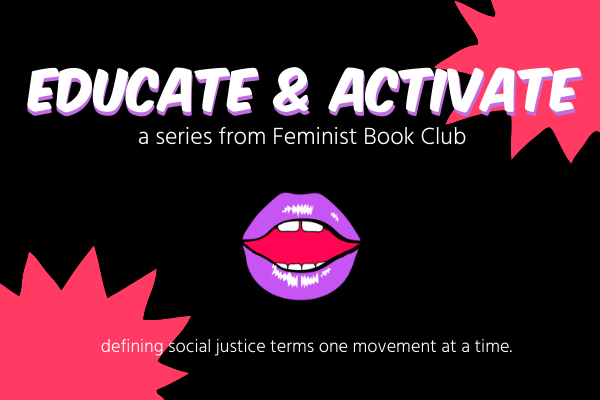Feminist Book Club blog contributors are working together to create posts as an “Educate & Activate” series. We will define a term or movement, provide historical context, and give you additional resources to learn more. We believe that an educated populace can be better activists, accomplices and co-conspirators. It is important to note that these are meant to be brief descriptions and not inclusive or exhaustive of all resources. We urge you to continue being curious, and continue learning more.
Definition
Reparations is a term to describe the giving of money or services to a group of people after they have endured an injustice. Typically reparations are distributed in the form of money by a larger institution such as the government.
First Usage
The first time reparations were of use successfully in modern history by a country’s government was after World War II when Germany apologized for the severe trauma and mass genocide that the Jewish population endured. Germany is the first country in modern history to pay reparations as an apology from the whole country to citizens who were wronged. These reparations were made in the form of hundreds of millions of dollars which were paid to both Holocaust survivors and the country of Israel.
History
Since the use after World War II by Germany, reparations are used more widely to make amends for the injustices many communities face. Reparations are used in the United States to make amends for the actions of the United States government through history. The first successful time the United States issued reparations was 1988 after the Civil Liberties Act was passed where 80,000 Japanese Americans were compensated for the Japanese internment camps which ran throughout World War II. Each family was compensated $20,000 for their imprisonment in the Japanese interment camps. Prior to the reparations in the 1990s, reparations were issued in 1946 to 176 tribal nations as compensation for the misuse of treaties and the taking of tribal land in United States history. That being said, the reparations for these tribal nations only equated to about $1,000 dollars per person of Native American heritage. With this in mind, there are still large groups of people who are waiting to be paid reparations to compensate for the injustice their community faced or still face throughout history. For example, the African American community is waiting on reparations from the United States government for the enslavement of their ancestors throughout history. Likewise, there needs to be critical thinking about whether reparations are enough to compensate and apologize for the injustices people faced in the past. There is great discussion today about whether more needs to be done or if financial reparations are enough.
Resources For Further Education
The Thorny History of Reparations in the United States
The Case for Reparations by Ta-Nehisi Coates
What Reparations for Slavery Might Look Like in 2019


